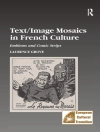In ‘The Unknown Masterpiece, ‘ Honoré de Balzac intricately weaves a tale that explores the enigmatic relationship between art, genius, and the creative process. The novella, first published in 1831, employs a rich and vivid literary style, characterized by Balzac’s signature realism and psychological depth. Set against the backdrop of 17th-century France, the story follows the ambitious painter Frenhofer, whose obsessive pursuit of perfection leads to a dramatic and tragic confrontation with the nature of artistic idealism, ultimately questioning the boundaries between reality and abstraction. Balzac’s nuanced portrayal of the tension between artistic aspiration and the often harsh reception of art serves as a meditation on the transformative power of creativity itself. Honoré de Balzac, a towering figure in French literature, sought to depict the complexities of human experience through his expansive oeuvre, especially within his beloved series ‘La Comédie Humaine.’ His own struggles with artistic ambition and social critique inform the narrative of ‘The Unknown Masterpiece, ‘ illuminating how his keen observations of society and human behavior propelled him to investigate the intricacies of artistry and perception. The novella showcases his ability to balance philosophical introspection with gripping storytelling. For readers grappling with the nature of art and creativity, ‘The Unknown Masterpiece’ stands as a timeless exploration that invites deep reflection. Balzac’s multifaceted approach not only captivates but also challenges the reader to contemplate what constitutes true mastery in art. This novella is essential for those intrigued by the artist’s journey and the compelling questions surrounding artistic authenticity.
Tentang Penulis
Honoré de Balzac, bespeaking the canon of 19th-century French literature, was an exemplar of literary realism and the driving force behind the monumental work ‘La Comédie Humaine’. Born on May 20, 1799, in Tours, France, Balzac’s oeuvre encapsulated a wide spectrum of French society, mapping its nuances and social strata with unerring precision. A proponent of extensive research and fierce work ethic, his narratives blend character studies with discerning societal observations, as evidenced in ‘The Unknown Masterpiece’ (Le Chef-d’œuvre inconnu), a poignant tale melding obsession and artistry, which has fervently influenced both literary and artistic domains. Balzac’s determinate influence on the novel as a genre is immeasurable, fostering advancements that predecessors such as Dickens and contemporaries like Flaubert would inherit. Balzac’s endeavors in literature were a perpetual quest for verisimilitude, dictating a narrative style inundated with intricate detail and vivid characterization. As a literary architect, his contributions have become foundational to the realist movement, earning him accolades from peers like Victor Hugo and a legacy celebrated by scholars and readers alike. His passing on August 18, 1850, did not conclude his enduring impact on literature; instead, it cemented his stature as one of the most pivotal figures in the world of letters.












